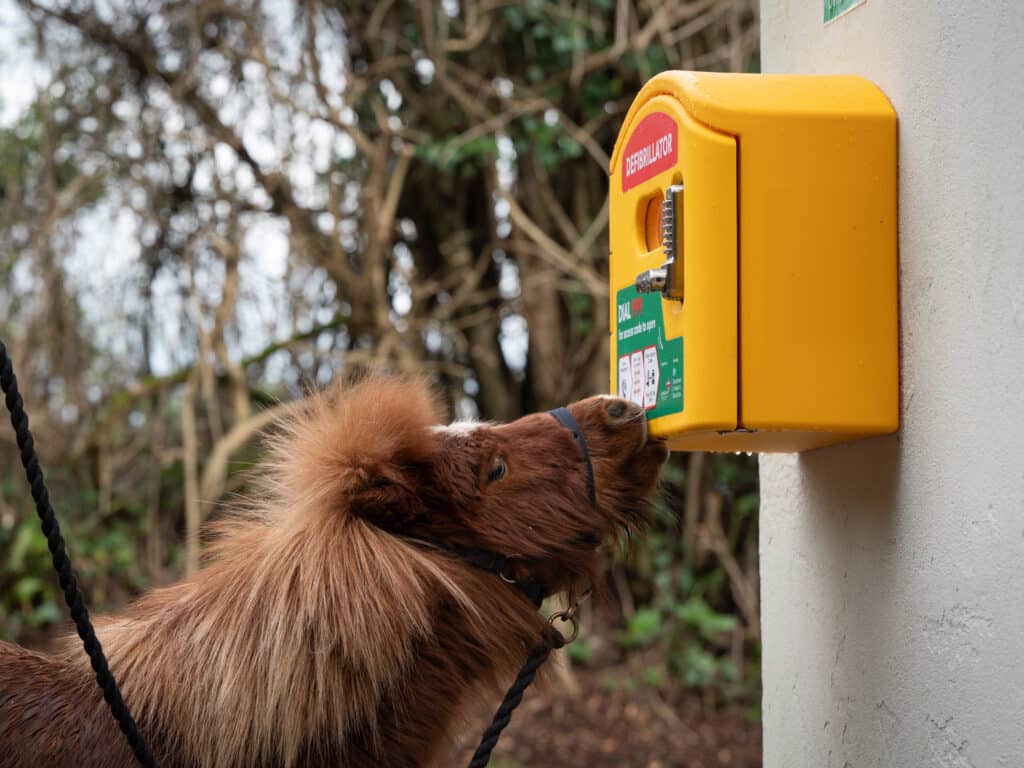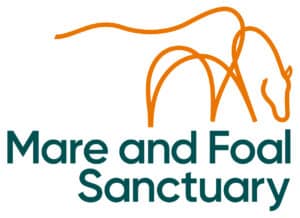
Lifesaving equipment installed at Coombe Park
We would like to say a huge thank you to our wonderful supporters for helping us to buy new life-saving equipment which will benefit staff, visitors, and local people.
With the help of donations, our team has installed a defibrillator and is training staff to give lifesaving first aid as we prepare to welcome more visitors to our Education and Equestrian Centre near Totnes.
When someone has a cardiac arrest, it’s vital they receive CPR and defibrillation as quickly as possible. A defibrillator can help restart their heart while waiting for the emergency services to arrive.
Coombe Park is one of five Mare and Foal Sanctuary sites in Devon which provides life-long, life changing loving care and support to foals, ponies and horses in need. Our Equine Assisted Service team, based at Coombe Park, offers the chance for people to benefit from a special connection with animals through learning and activities. Our site is also open to the public on certain days throughout the year so that they can meet some of our equine ‘stars’ and learn more about the vital work of our charity.
The defibrillator was bought through a match-funded government scheme offered by the Department of Health and Social Care. The programme was run by the Community Automated External Defibrillator (AED) Grant Team which provided the equipment at a reduced rate, working with a charity called London Hearts.
The Mare and Foal Sanctuary’s Chief Operating Officer Iain Wylie said, ‘We chose Coombe Park as the first of our sites to have a defibrillator as it receives the most visitors. As an Education and Equestrian Centre offering equine assisted services, we regularly work with vulnerable people, many of whom have additional health needs. We want to offer the best care and support to all our visitors and staff, so we plan to install defibrillators at every one of our sanctuary sites in the future.’
The British Heart Foundation has stressed the importance of having easy-to-access equipment like this throughout local communities. It says: ‘Every minute without CPR and a defibrillator reduces survival by up to 10 per cent.’
The Defib finder register offers this advice: ‘If you come across someone who is unconscious, unresponsive, not breathing or not breathing normally they are in cardiac arrest. The most important thing is to call 999 and start CPR to keep blood flowing to the brain and around the body. If you are on your own, do not stop performing CPR to get a defibrillator, if possible, send someone else. When you call 999, the operator can tell you if there is a public access defibrillator nearby and the pin to gain access.’



